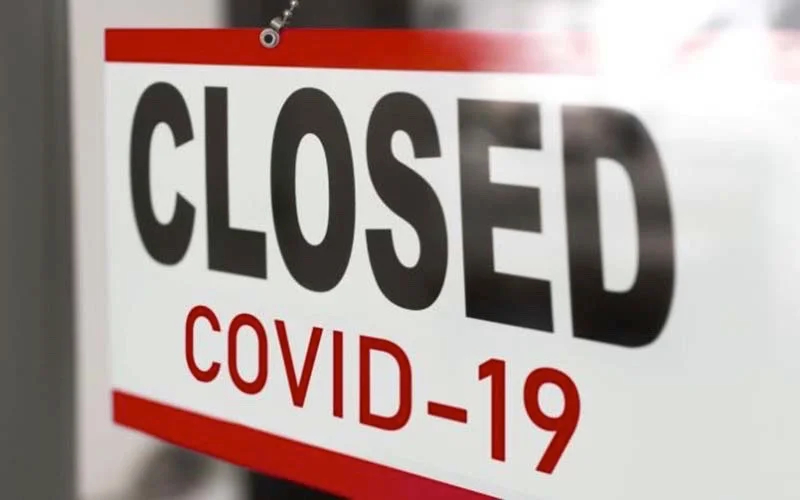Tips for College Students with Learning Disabilities
Embarking on a college journey as an adult with learning disabilities can be daunting. It's a significant step that requires careful planning and resourcefulness. To ensure you make the most of your educational experience, here are some essential tips to help you get the support you need to succeed.
1. Evaluate College Accommodations
The first step in your educational journey is ensuring the college you choose meets your needs. Here's how to do that:
Research Disability Services
Investigate online whether the college has a dedicated office for disability services. This office should offer support and resources tailored to students with various learning disabilities. If you want additional information on their services, you can call their office numbers and inquire for more insights on the type of assistance they can offer you.
Understand Available Accommodations
Check if the institution provides necessary accommodations such as:
- Priority Registration: Allows you to register for classes early, ensuring you get the courses and schedules that best meet your needs.
- Extended Exam Time: Provides additional time to complete tests, reducing the pressure and allowing you to demonstrate your knowledge fully.
- Note-Taking Apps: Technology that assists in capturing and organizing lecture notes effectively.
- Alternative Formats for Course Materials: Access to textbooks and other materials in formats that are easier for you to use, such as audiobooks or e-texts.
- Quiet Testing Locations: Separate rooms or areas where you can take exams in a less distracting environment.
- Assistive Technology: Tools such as screen readers, speech-to-text software, and other devices that aid in learning.
- Language Waivers or Course Substitutions: Depending on college or major requirements, you can substitute certain courses or waive requirements.
- Reduced Course Load: Permission to take fewer courses per semester while maintaining full-time status.
- Housing Accommodations: Adjustments in dormitory assignments to better suit your needs, such as quieter floors or rooms with special equipment.
Faculty Training and Awareness
Well-informed professors can make a significant difference in your academic success. Check with the institution to ensure that the faculty is trained to understand and assist students with learning disabilities.
Campus Visits and Tours
If possible, visit the campus. Meet with the disability services office to discuss your needs and how they can support you. This personal interaction can provide a clearer picture of the college's commitment to accommodating students with learning disabilities.
2. Advocate for Yourself
Being your own advocate is crucial in navigating college with a learning disability. Here’s how to effectively advocate for yourself:
Early Communication: Contact the disability services office when you are accepted to discuss your specific needs and the accommodations you require. You may need to register with the office to receive your accommodations officially. Early planning can prevent many issues before they arise, so be sure to register before your classes begin.
Document Your Needs: Keep thorough documentation of your learning disability. This includes professional evaluations, medical records, and any previous accommodations you’ve received. Having this information readily available will facilitate smoother discussions with college staff.
Regular Check-Ins: Establish a routine of checking in with your professors and the disability services office. Regular communication ensures that your needs are continually met and any issues are promptly addressed.
Know Your Rights: Title II of the American Disabilities Act (ADA) protects people with disabilities from discrimination, including in educational institutions. It is illegal for any faculty member to deny you necessary accommodations or mistreat you on the basis of your disability. If you encounter a potential ADA violation, you can start by having a civil conversation with the faculty member about your accommodations and learning needs. If they still refuse to comply, inform them that the disability office will be in touch and escalate the issue to your institution’s disability office who will advise you from there.
3. Utilize Campus Resources
Colleges often provide a variety of resources designed to support student success, especially for those with learning disabilities. Making full use of these resources can significantly enhance your college experience and help you overcome any challenges:
Tutoring Centers: Many colleges offer free tutoring services. These centers often have tutors trained to work with students with learning disabilities. When visiting a tutoring center, be sure to discuss your needs. Let the tutor know about your learning disability and the specific areas you need help with. This transparency allows them to tailor their assistance to your needs.
Writing Centers: If writing is a challenge, visit the campus writing center. Here, you can receive help with structuring your papers, improving your writing skills, and understanding assignments.
Study Groups: Joining or forming study groups can provide mutual support and a deeper understanding of course material. Study groups can also offer a social network, reducing the isolation that can sometimes accompany returning to college as an adult.
Technology Resources: Utilize technology designed to assist learning, such as speech-to-text software, audiobooks, and organizational apps. These tools can help you manage your workload more effectively while getting the most out of your education.
Counseling Services: Mental health is crucial for academic success, and many colleges provide counseling services to support students. These services can offer strategies for managing stress, anxiety, and other challenges that may arise during your studies. Don't hesitate to seek help when needed; maintaining your mental well-being is just as important as excelling academically.
4. Find External Support and Resources
Beyond campus resources, there are numerous external supports available:
Online Communities: Join online forums and support groups for students with learning disabilities. These communities can offer advice, share experiences, and provide emotional support.
Nonprofit Organizations: Organizations such as the National Center for Learning Disabilities (NCLD) and Learning Disabilities Association of America (LDA) provide resources, advocacy, and support for individuals with learning disabilities.
Local Support Groups: Look for local support groups that meet in person. These can offer a sense of community and practical advice from others who understand your challenges.
5. Leverage Assistive Technology
For adult students with learning disabilities, assistive technology can be a game-changer. Here are some tools that can help you thrive academically:
Text-to-Speech Software: Programs like Kurzweil, NaturalReader, and other options can read textbooks and other materials aloud, making it easier to comprehend and retain information.
Speech-to-Text Software: Dragon NaturallySpeaking and other dictation tools can help you write papers and take notes more efficiently by converting your spoken words into written text.
Mind Mapping Tools: Software like MindMeister and XMind can help you organize your thoughts, plan essays, and study for exams by visually mapping out ideas and information.
Apps for Organization and Time Management: Apps like Evernote, Trello, and Google Keep can help you stay organized, manage your time, and keep track of assignments and deadlines.
It’s important to do research and find which software or app works best for you. Learn more about other assistive technology tools here.
Conclusion
Returning to college as an adult with learning disabilities can be empowering with the right resources and support. Embrace this journey with confidence, utilizing the available accommodations, support networks, and adaptive technologies to overcome challenges and succeed at school.




